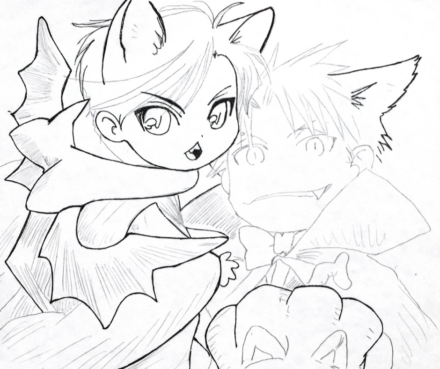
Can Fictional Characters be recognised as a Copyright Work?
4th September 2023 by Tiff Elmer
In a recent decision, the High Court of England and Wales has ruled that fictional characters can be recognised as copyright works. This is a significant development, as it means that authors and creators of fictional characters will now have greater protection for their work.
The case in question involved the character of “Del Boy” from the British sitcom Only Fools and Horses. The character’s creators, Shazam Productions, sued a company that was running a “Del Boy”-themed restaurant. The company argued that the character of “Del Boy” was not a copyright work, and that they were therefore free to use it in their restaurant.
However, the High Court disagreed. The court found that the character of “Del Boy” was a “literary work” under copyright law, as it was a “work of fiction in which the characters are delineated in sufficient detail to enable them to be identified and distinguished from other characters.” The court also found that the character of “Del Boy” was “original,” as it was not a mere reproduction of existing characters.
This decision is significant because it means that authors and creators of fictional characters will now have greater protection for their work. In the past, it was unclear whether fictional characters could be recognised as copyright works. This meant that authors and creators of fictional characters could have their work copied and used without their permission.
This decision is significant because it could have implications for other types of works. For example, it could mean that the characters in video games or comic books could also be protected by copyright law. This would give authors and creators of these works greater protection for their work as well.
The decision in this case is a welcome development for all authors and creators of fictional characters. It gives them greater protection for their work, and it could also have implications for other types of works. This is a positive step for copyright law, and creators should now have this at the forefront on their minds.
What does this mean for businesses?
This decision has a number of implications for businesses. Firstly, it means that businesses need to be more careful about how they use fictional characters in their products and services. If they use a fictional character without permission from the copyright owner, they run the risk of being sued for copyright infringement.
Secondly, this decision could make it more difficult for businesses to create new products and services that feature fictional characters. If the character is protected by copyright, businesses will need to obtain permission from the copyright owner before they can use the character.
Thirdly, this decision could lead to increased litigation over the use of fictional characters. As businesses become more aware of the copyright implications of using fictional characters, they are likely to be more aggressive in enforcing their rights and look at what businesses are doing now, and in the past.
What should businesses do?
Businesses that use fictional characters in their products and services should take the following steps to protect themselves:
- Identify the copyright owner of the fictional character. This information can usually be found by doing a search on the copyright registration database.
- Obtain permission from the copyright owner before using the fictional character. This can be done by contacting the copyright owner and negotiating a licensing agreement.
- If permission is not granted, do not use the fictional character. Using a fictional character without permission could result in a copyright infringement lawsuit.
Alternatively, if you have come across a business who is using your fictional characters without your permission, we recommend seeking legal advice to assess the appropriate next steps.
If you want to know more about anything mentioned above, or would like any legal advice, please contact Tiff Elmer at t.elmer@laceyssolicitors.co.uk or on 01202 377814.



